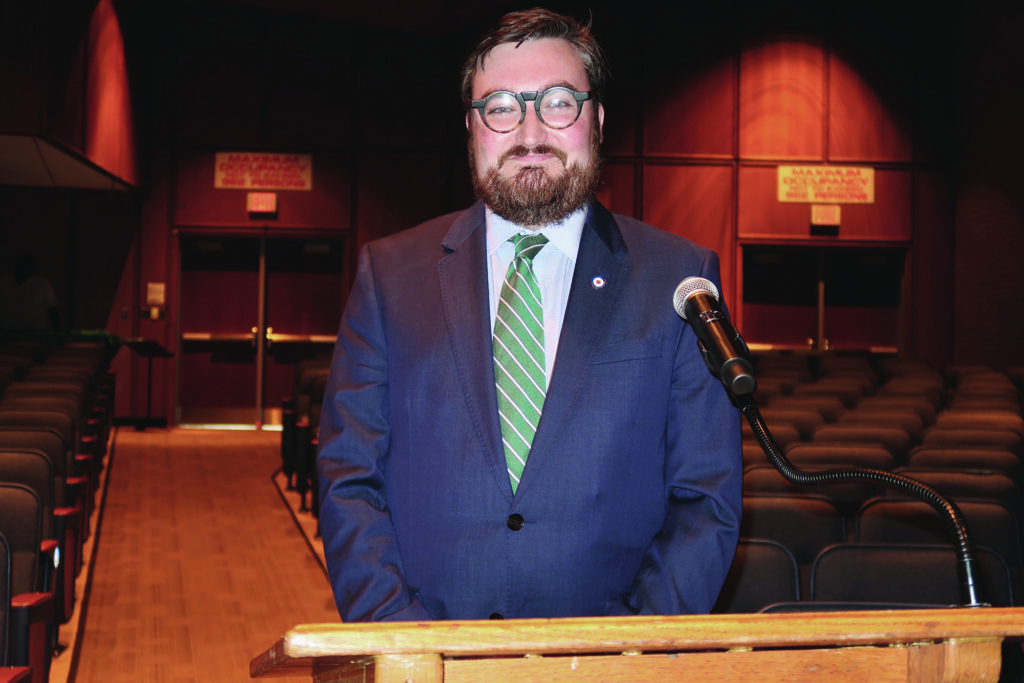Critics urge Town Board to drop proposed changes to rental code

More than 30 people spoke at a public hearing Tuesday night on proposed changes to Riverhead Town’s rental code, and almost all of them urged the Town Board to drop the proposal, saying it violates civil rights legislation.
The most controversial section of the proposed code amendment states: “It shall be unlawful for any owners, persons or tenants to occupy or allow the occupancy of a rental dwelling unit within the Town of Riverhead which is not in conformance with this chapter’s definition of Family or functional equivalent thereof.”
Deputy town attorney Erik Howard said that “in comparison with surrounding towns, our definition of family is far looser than, say, Brookhaven or Southampton’s, consistent with case law issued by the state.”
The proposal states that “in determining whether individuals are living together as the functional equivalent of a traditional family,” a number of criteria must be met, including that they “resemble a traditional family unit, they share a single or one-family dwelling unit and live and cook together as a single housekeeping unit, share expenses” and several other criteria.
Minerva Perez, executive director of OLA of Eastern Long Island, questioned why the proposal was being made now, amid a pandemic and with a prohibition on rental evictions about to end.
“I am struggling with why a government body would take the risk of striking at the heart of its community when it’s at its most weak,” she said. “Right now, we’re in the midst of an ongoing pandemic, and we are on the eve of the end of an eviction moratorium that’s going to unleash a flood of evictions like you’ve never seen before.”
“These code provisions could have unintended consequences that adversely affect members of various protected classes,” said Marlo Paventi Dilts of the Long Island Board of Realtors. “Labeling a family as traditional leaves room for mistreatment, exclusion and discrimination in the rental and buying process, which is a problem that still exists here on Long Island and needs to end.”
Sister Margaret Smyth, director of the North Fork Spanish Apostolate, said Riverhead is losing its base of low-paid workers and its people are moving to nearby hamlets like Mastic, Shirley or Port Jefferson.
People call her every day seeking workers, but she said she doesn’t know of any because they don’t live here.
“We live in a town where our bagel stores can’t take phone orders on a Saturday morning because they are understaffed,” said Cindy Clifford, chair of Riverhead Town’s Anti-Bias Task Force. She said sharply rising housing costs have pushed out younger residents.
“We are greatly concerned that this disturbing code revision would further impact the ability of anyone just starting out, or living on a limited income, to be able to choose to or continue to live in Riverhead,” she said.
The proposed code would single out the “economically disadvantaged and discriminate against anyone not in a ‘traditional family unit,’ ” Ms. Clifford said.
Carolyn Peabody, a member of the Suffolk County Human Rights Commission, the Southold Town Anti-Bias Task Force and the North Fork Unity Action Committee and a clinical professor at the Stony Brook School of Social Welfare, urged the board to reject the proposal.
She said there are already laws on the books to limit the number of people that can live in homes. The proposed change, she said, “will contribute to the likelihood of wide-scale discrimination.”
Ms. Peabody added: “If you consider the rental market at this time and for quite a while and likely into the future, it is mind-boggling that you would try to make it harder for people to actually find places to live.”
Pilar Moya-Mancera of the Greenlawn-based Housing Help Inc. said many of the people living with non-blood relatives are doing so because they need to, not because it’s what they want.
“These families cannot afford to rent by themselves, due to insufficient incomes and the extremely expensive cost of living on Long Island,” she said.
Ellen Hoil of Riverhead spoke of the effects on the LGBTQ community.
“I am a member of a community,” she said. “That community is the LGBTQ community. We have a long history of not fitting in traditional families, because we weren’t allowed to. It is very onerous on us that we have spent our lives creating our families. And you are not taking those away.”
The town also received a letter signed by 26 organizations urging the board to reject the proposed rental dwelling units amendments.
“The proposed definition of a ‘traditional family’ likely runs afoul of the long-standing court precedent and the state Human and Civil Rights statutory definitions and protections,” they wrote, saying they feel the change would violate the federal Fair Housing Act, along with state and county human rights laws.
Councilwoman Catherine Kent said she feels the legislation is discriminatory, but noted that the town needs to address unsafe housing.
Councilman Tim Hubbard said his concern relates to the safety of children.
“We have seen some deplorable conditions, with people living in houses with extension cords running all over the place, fire hazards, entrapment hazards,” he said. “That’s what this initiative is about. It’s not about picking on any one person because of their skin color or ethnicity or anything else.”
Councilman Ken Rothwell said there was an incident in New York City where two firefighters died when they entered a structure and there was an illegal partition put across a room and the firefighters became trapped.
Supervisor Yvette Aguiar responded to comments that the proposal is racist by pointing out that she is Latina herself and spoke only Spanish when she entered school.
“Racist is the last thing I am,” she said.
The Town Board will accept written comments on the proposal until Friday, Aug. 27.








